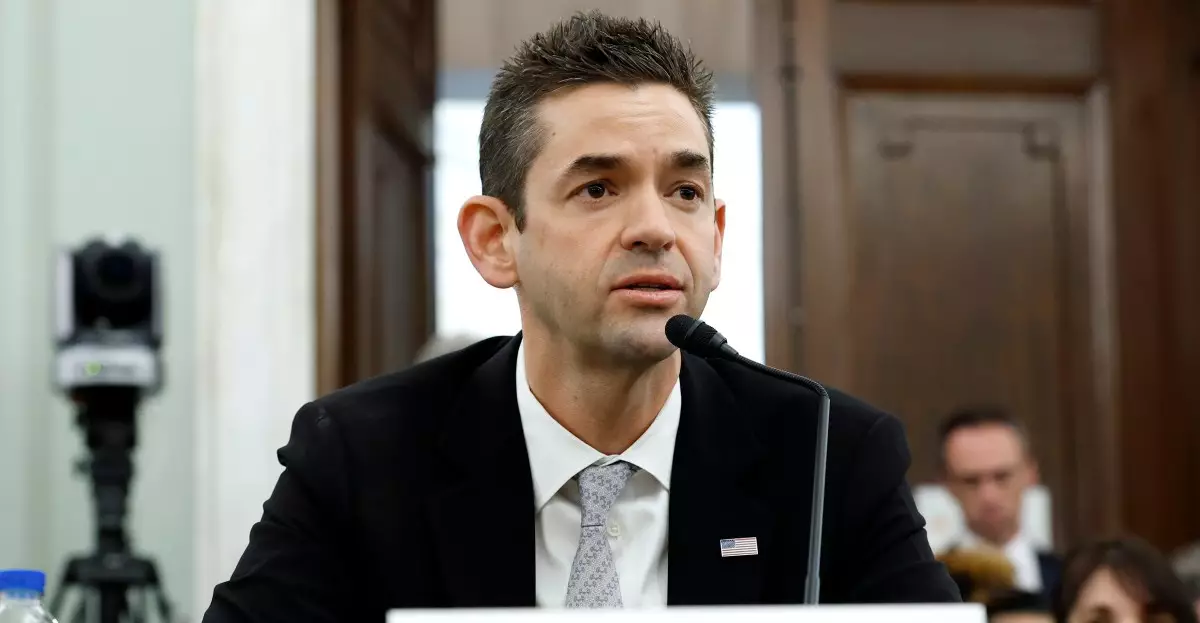The recent withdrawal of Jared Isaacman’s nomination to lead NASA underscores a troubling intersection of politics and space exploration in America. Isaacman, a billionaire entrepreneur known for his role in commercial space ventures like SpaceX, found himself the target of political scrutiny primarily due to past contributions to Democratic candidates. Reportedly, this disqualification was orchestrated at the behest of former President Trump, who clearly stated his intention to nominate someone who aligns strictly with his ‘America First’ agenda. This situation exemplifies how partisan politics can compromise critical leadership appointments in federal agencies that should prioritize scientific progress and innovation.
Space Operations at Risk Amid Budget Cuts
While debates swirl around Isaacman’s nomination, a more pressing concern is the proposed budget reductions for NASA. The administration has signaled intentions to slash NASA’s budget by nearly one-fourth, a staggering cut from $24.8 billion to $18.8 billion. This level of defunding reflects a disturbing trend that could severely hamper America’s efforts in scientific research and space exploration. The Planetary Society, a prominent advocacy group, articulated that such austerity measures represent not merely budget cuts but a catastrophic setback for ongoing and future scientific endeavors. Given America’s historical leadership in space, these developments could jeopardize more than just missions; they threaten the very fabric of scientific innovation that defines NASA.
Redirecting Leadership Priorities
Isaacman’s relationship with SpaceX through his multiple private missions has elevated him to a prominent figure in the space industry. However, the current political atmosphere suggests that NASA leadership is being transformed into a pawn of partisan agendas rather than being appointed based on an individual’s capability to propel the agency forward. Statements from the White House emphasizing alignment with Trump’s political vision raise serious questions about NASA’s operational priorities. Shouldn’t an organization responsible for space exploration transcend political agendas and instead focus on the universal and collaborative pursuits of science and exploration? The space sector often thrives on partnerships that include multinational stakeholders and collaborative scientific communities—actions that contradict the narrow political lens being applied to its governance.
The Future of NASA: A Challenging Landscape
As NASA navigates these turbulent waters, the prospect of effective leadership becomes both critical and complicated. The implication of political loyalty over competence can lead to stagnant policies that overlook technological advancements or disregard the need for diversity in leadership thought. Should the agency fail to attract a visionary leader capable of building bridges across various sectors, it risks falling behind in the global space race. The challenge is not merely about who fills the role of NASA Administrator, but about what ethos they bring—whether they can inspire a culture of exploration rooted in collaboration rather than division.
Ultimately, as America seeks to maintain its status as a leader in space, it must reconsider the narratives that govern its space policy and public appointments. The stakes are high, and the failure to act with a forward-thinking perspective could have implications that extend far beyond political enclaves, resonating deeply within the hearts of future generations of explorers and scientists.

